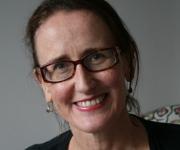WHEN you hear talk of international drug cartels, your first thought is probably of Colombian drug barons or the poppy fields of Afghanistan.
However, there are far more deadly forces at work than those, as a review in The Lancet Infectious Diseases makes clear.
South-East Asia and other parts of the developing world are awash with counterfeit pharmaceuticals stocked by pharmacies, corner shops and market stalls. They look like the real thing but often contain little or no active ingredient.
There are drugs for tuberculosis and for HIV-AIDS, but perhaps the most devastating in their impact are the fake antimalarials.
The Lancet review found that about a third of malaria drugs tested in seven South-East Asian countries were fake. More than a third failed chemical testing and nearly half were incorrectly packaged.
Results from 21 countries in sub-Saharan Africa were similar, the researchers said, though the percentage of fakes was slightly lower.
The peddlers of these useless drugs are putting lives at risk by denying users access to proper treatment, as well as defrauding some of the world’s poorest people — but that’s not the worst of it.
The past decade or so has seen the most concerted international effort to rid the developing world of the scourge of malaria. The disease remains endemic in 106 countries, killing more than 600 000 people each year, but gains have been made.
Globally, the WHO estimates the incidence of malaria has reduced by 17% since 2000, while mortality has dropped by 26%.
The trade in counterfeit pharmaceuticals puts those fragile achievements at risk.
Many researchers believe the proliferation of fake drugs containing varying quantities of active ingredient is effectively training the parasites to become resistant to every weapon we have to combat them.
Malaria researcher Professor Geoff McFadden, from the University of Melbourne, describes it as a “waking nightmare”.
“We’ve lost a really great drug, chloroquine, to resistance already,” he says. “Chloroquine probably saved more lives than any other molecule, but it’s now almost useless.”
Now we’re looking at something similar happening with the current first-line treatments — the artemisinin-based drugs, he says.
“The counterfeits, the variable quality of active ingredients, and the somewhat ad-hoc regimens present the parasites with virtually every permutation of exposure. Basically, we’re asking them the resistance question in every possible way it can be framed.
“And of course they come up with the answer.”
Resistance to artemisinin has already been reported in several South-East Asian countries and, with today’s cheap air travel, it’s likely to spread rapidly to other regions where malaria is endemic, Professor McFadden says.
The authors of The Lancet paper say the spread of artemisinin-resistant parasites to Africa would constitute a “public health disaster”, arguing those who manufacture or distribute the fake drugs should be prosecuted for crimes against humanity.
Sadly, there is currently no international legal jurisdiction that could allow that to happen. Operating in countries where drug regulation is sketchy at best, most of the counterfeiters have little or no difficulty with the law. If they are caught, they generally suffer not much more than a rap over the knuckles, a few months in prison if they’re unlucky.
Putting an end to this evil but lucrative trade would require enormous strengthening of national and international regulatory environments (something that would, incidentally, be very much in the West’s interests, given the increasing shift of pharmaceutical manufacturing to the developing world).
We’d also need education campaigns to inform consumers and health care workers in malaria-affected countries about the importance of using only genuine products.
But perhaps the most important thing the global community could do would be to ensure that the estimated 216 million people who have an episode of malaria each year have access to genuine treatments at an affordable price — or, even better, free of charge.
That might just put the fraudsters out of business and give us a real shot at finally eradicating malaria.
Jane McCredie is a Sydney-based science and medicine writer.
Posted 28 May 2012

 more_vert
more_vert